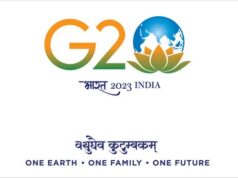The recent back and forth between the Centre and the Supreme Court regarding the former’s decision to deport the Rohingya immigrants due to security risks has gained momentum- shedding light on the institutional lack of accountability the Centre and its decisions have in this matter. Although the constitutional framework remains intact in giving the Centre the power to do as it deems fit, the transpiring of these events questions whether such an extreme tradeoff between issues of national interests and humanitarian obligations is befitting of the largest democracy in the world.
The petitioners have countered the Centre’s circular directing States to deport the Rohingya “illegal migrants”, invoking the concept of non- refoulement wherein a host country is not allowed to send a refugee back to their home country if they face the risk of persecution on discriminatory grounds. However, the problem with such an appeal persists in the simple fact that India is neither a signatory to the UN Convention Relating to the Status of Refugees nor to the Protocol, and has hence not subscribed to the internationally prescribed legally binding definition of “refugees”. As a consequence, India is under no obligation to recognise the concept of “non- refoulement” or look at these “illegal migrants” as refugees fleeing due to fear of loss of life. The problem gets exacerbated by the fact that India does not have any domestic Refugee Law governing the processing/ recognition of refugees. The onus of drafting any law pertaining to this subject falls exclusively with the Parliament, however, it has not yet agreed upon any of the asylum drafts that have been tabled.
It is also this lack of a Refugee Law (or adherence to the UN convention on the same) that translates into a non-uniform and arbitrary manner of acknowledging and processing these persons, thus handing over complete autonomy of granting asylum to seekers solely to the Centre (which would vary with the changing heads of state) with no concept of checks and balances in place.
Such a refugee law would not only protect the rights of such a community within the host country but also ensure a standard protocol to be followed by the Centre whenever faced with an influx such as the most recent one of the Rohingya refugees (who have not been granted asylum by India), without falling prey to the ideological inclinations of the presiding party. This would become especially crucial if the beliefs of the refugee population vary significantly from the electorate of the host country. Therefore, codifying a set legal process for the elected government to follow not only helps in inculcating accountability but also helps ensure the process is appropriately neutralised.
That said, taking a cue from the forever changing international political climate, it is best to assume the role of an adaptable green reed rather than the stubborn silver oak.
Image Source: https://scroll.in/latest/819438/
Although a codified legal process helps in setting a framework to ensure that Nations act in a manner that is both accountable to the domestic community and appropriate in terms of upholding the virtues of Humanity, it would be apt to nudge the mind into acknowledging the fact that there needs to be an optimum balance between liberalism and realism (or at least an attempt to reach the same).
Granted that rules lay down processes that help systems function and uphold certain values without having to continuously rely on the individuals that constitute it; simultaneously though, it is equally essential that a degree of malleability is allowed, taking into consideration the contextual nuances of the situation at hand. This holds particularly true for the Rohingya crisis, wherein decision making has to balance between legal obligations of a democratic nation- state to attend to humanitarian emergencies on one hand and geopolitical consequences on the other.
To grant the refugees asylum would mean an implicit agreement to the assertion that the stateless community is being persecuted by the Myanmarese State or at best, that its de facto Head of State (Aung San Suu Kyi) is unable to contain the military junta’s persecution of Rohingya Muslims. Both of these would seriously undermine the Myanmarese democracy as well as the formally instituted Head’s control over her political instruments- a proposition that goes against what India has spent its diplomatic prowess nurturing through the subtle and relatively recent backing of Suu Kyi.
This, further robbing Suu Kyi of the little legitimacy she has left, would destroy even the semblance of democracy in Myanmar- further sending the country spiralling into the same abyss it spent years trying to crawl out of. For India, this would have both- significant economic repercussions (as India has invested heavily into Myanmar, making it the focal point of its “Look East Policy”) as well as political ramifications (in terms of polarisation towards China), rendering the already delicate 1,600 km stretch shared between Myanmar and India even more vulnerable to belligerent elements- thus potentially incurring an unimaginable human cost.
Caught between a righteous democratic rule of law and the realistic (sometimes unethical) Hobbesian obligations of a State grounded in realpolitik, India is faced with a rather peculiar predicament that is dominated by an utterly conflicting mix of factors- to the point that this theatre of politics would have been amusing to see unfold if it wasn’t for the colossal human collateral that has had the misfortune of being caught in the balance.
Post Disclaimer
The opinions expressed in this essay are those of the authors. They do not purport to reflect the opinions or views of CCS.






